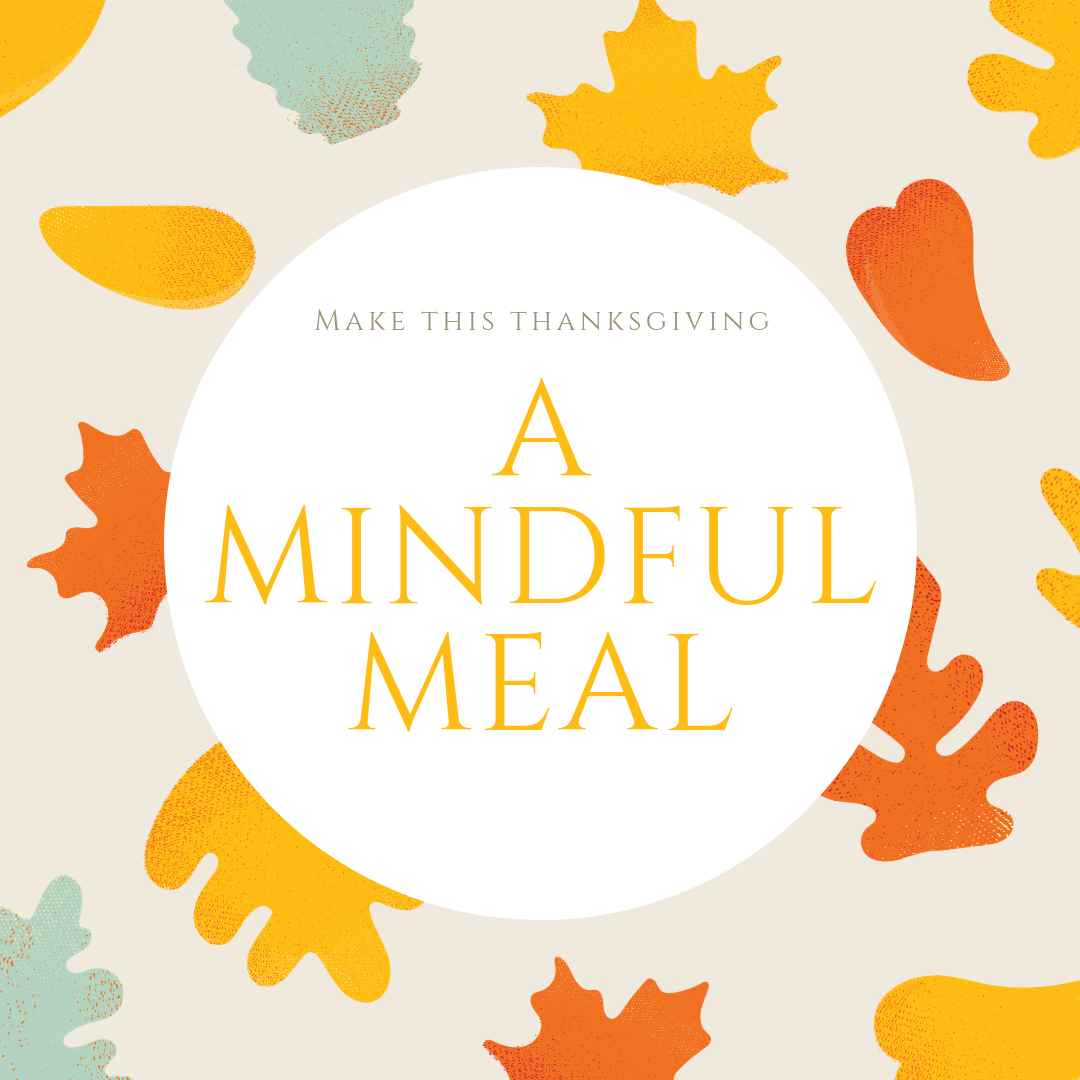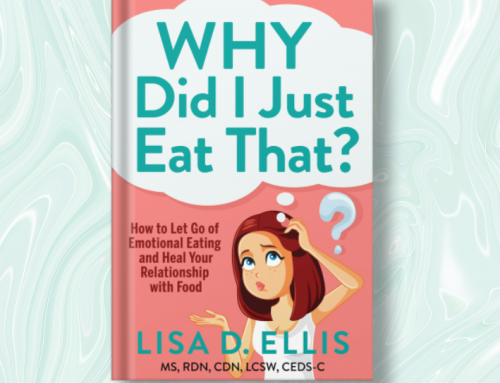What would it be like to enjoy Thanksgiving in a mindful sort-of-way?
In my last (blog/newsletter) we discussed how calorie restricting diets tend to fail in the long run: They often lead to yoyo dieting, or to feelings of deprivation that make ongoing dieting unsustainable over time and can often lead to Binge Eating. Moreover, in many cases the goals are unrealistic from the start; people with larger skeletal frames or curvier body distribution cannot diet themselves into a body type that is not biologically theirs. And all too often, once off a calorie-counting diet, former dieters tend to gain back whatever it was they lost, and more.
My recommendation–in addition to examining their relationship with food and eating–is that people relax the strict rule-based approach to eating and learn to trust the body’s own hunger and fullness cues. They can forget trying to attain perfect eating, and learn to see the value in “good enough” eating. In other words, adapt an Intuitive Eating approach to both eating and food.
But while Intuitive Eating focuses on listening to the body, Mindful Eating helps give Intuitive Eating both context and a level of meaning that makes the intuitive approach easier to integrate into our lives. Or put another way, while Intuitive Eating is the “how,” Mindful Eating is the “why.”
For some people, the word “mindful” smacks of hippie-crunchy-granola-type trendiness; it does seem to be everywhere these days! But stick with me… mindfulness’s use as a tool for being more present, aware, and authentic makes it more helpful than a simple fad.
Seen the right way, mindfulness contains an element of sacredness: it encourages us to tune out the chatter in the world around us, and find something essential and personal in anything we are doing. With a mindful approach, not only are we open to be in tune with our bodies and their hunger or fullness cues, we might also go on to observe a dispassionate perspective of any food or eating issues we might be dealing with.
By looking inward, mindfulness almost automatically encourages gratitude, even as that very gratitude encourages us to reach back, even deeper into our selves. It is this strong connection between mindfulness and gratitude that makes it a natural fit for Thanksgiving; a holiday that actually uses food as it’s chief method of celebration. (Most holidays have some sort of food-related tradition, but Thanksgiving is the only one that I can think of whose organizing purpose is established around a meal!) Mindfulness encourages us to use Intuitive Eating so we don’t over-eat, while at the same time promoting gratitude and allowing us to be fully present with friends and family.
Filled with the warmth of grateful thoughts while embracing our connections with friends and family, we can have a full, meaningful Thanksgiving experience that puts the food part of the festivities into a healthy balance: something to enjoy, but not the most important part. For many of us, that in itself is something to celebrate.
So, my friends, have a mindful Thanksgiving; may it nurture you in every way.
Until next time… honor your body, and enjoy what you eat!





